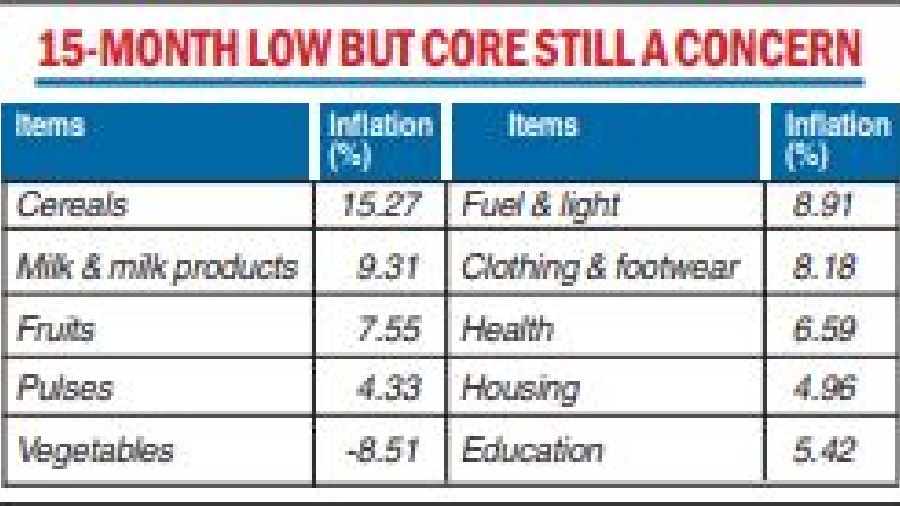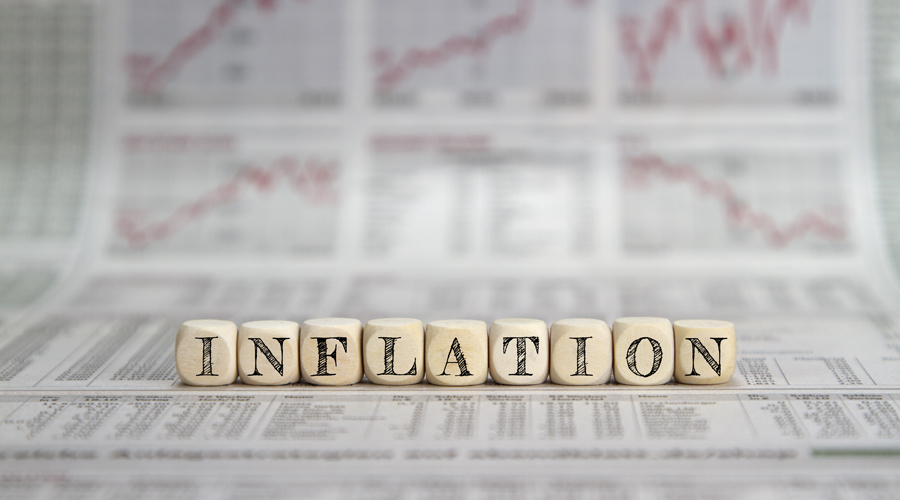Retail inflation cooled to a 15-month low of 5.6 per cent in March, falling within the RBI target range for the first time since December, as food prices moderated on account of falling vegetable prices, offset in part by surging cereal prices.
Retail inflation based on Consumer Price Index (CPI) stood at 6.44 per cent in February 2023 and 6.95 per cent in the year-ago period. The previous low was also 5.66 per cent in December 2021.
Though core inflation fell to 5.95-6.1 per cent from 6.23 per cent in February, it is still high enough for concern, analysts said.
Inflationary pressure in the economy continues to persist and the distribution of rains during the monsoon months would have to be closely watched for future monetary policy action, they said. Core inflation is inflation stripped off the fuel and food components.
According to the National Statistical Office, inflation in the food basket was 4.79 per cent in March against 5.95 per cent in February and 7.68 per cent in the year-ago period.
Retail inflation rose from 5.7 per cent in December 2022 to 6.4 per cent in February 2023 on the back of higher inflation in cereals, milk and fruits and slower deflation in vegetables prices.

Madhavi Arora, lead economist, Emkay Global Financial Services, said: “The easing of headline and core inflation in near-expected lines is a positive development. However, the inflation average has overshot RBI's 4Q estimate. The (RBI) pause is here to stay for at least 2-3 quarters before we get a pivot in the form of a cut."
Aditi Nayar, chief economist, Icra said: “Unless the feared heat wave leads to a rapid rise in prices of perishables, inflation may report a substantial base-effect led drop to around 5.0-5.2 per cent in the next two prints, which will reinforce the MPC's decision to pause in April 2023.”
“With reasonably healthy reservoir levels, and the El Nino expected to materialise only in the second half of the monsoon season, kharif sowing may not be impacted."
"However, any subsequent deficiency in monsoon rainfall could affect crop yields and food inflation, which along with any further hardening in crude oil prices remains a risk for the inflation trajectory,” she said.










